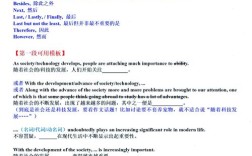Understanding Argumentative Essays in English

Writing an argumentative essay in English requires clarity, logical structure, and persuasive techniques. This type of essay aims to present a well-reasoned argument while addressing opposing viewpoints. Whether for academic purposes or professional communication, mastering the art of argumentation is essential.
Key Components of an Argumentative Essay
A strong argumentative essay consists of several critical elements:
-
Clear Thesis Statement
The thesis is the central claim of the essay. It should be concise, debatable, and positioned early in the introduction. A weak thesis leads to a vague argument, while a strong one guides the entire discussion. -
Well-Structured Arguments
Each paragraph should focus on a single point supporting the thesis. Begin with a topic sentence, provide evidence (facts, statistics, expert opinions), and explain how it reinforces the argument. -
Counterarguments and Rebuttals
Addressing opposing views strengthens credibility. Acknowledge differing perspectives, then refute them with logic and evidence. This demonstrates depth of analysis. -
Logical Flow and Transitions
Smooth transitions between paragraphs maintain coherence. Words like "furthermore," "however," and "conversely" help guide the reader through the reasoning process. -
Strong Conclusion
Restate the thesis in a new light, summarize key points, and leave a lasting impression. Avoid introducing new information—focus on reinforcing the argument.
Persuasive Techniques in Argumentative Writing
Effective persuasion relies on rhetorical strategies:
-
Appeals to Logic (Logos)
Use facts, data, and logical reasoning. For example, citing studies on climate change to argue for renewable energy policies. -
Appeals to Emotion (Pathos)
Connect with readers emotionally, but avoid manipulation. Personal anecdotes or vivid descriptions can make arguments relatable. -
Appeals to Authority (Ethos)
Reference credible sources—academic journals, experts, or reputable institutions—to establish trustworthiness.
Common Pitfalls to Avoid
-
Weak Evidence
Relying on unsupported claims or outdated sources undermines credibility. Always verify facts. -
Overgeneralization
Avoid sweeping statements like "everyone agrees." Instead, qualify arguments with precise language. -
Ignoring Counterarguments
Failing to address opposing views makes an essay seem one-sided. A balanced discussion enhances persuasiveness. -
Poor Organization
Disjointed paragraphs confuse readers. Outline the essay beforehand to ensure a logical progression.
Improving Argumentative Writing Skills
-
Read High-Quality Examples
Analyze essays from respected publications or academic journals. Observe how experts construct arguments. -
Practice Outlining
Draft an outline before writing. Identify key points, evidence, and counterarguments to maintain focus. -
Seek Feedback
Peer reviews or instructor critiques highlight areas for improvement. Constructive criticism refines reasoning and style. -
Revise Thoroughly
Editing is crucial. Check for clarity, coherence, and grammatical accuracy. A polished essay conveys professionalism.
The Role of Research in Argumentative Essays
Strong arguments depend on thorough research. Use reliable sources such as:
- Academic databases (JSTOR, PubMed)
- Government reports
- Peer-reviewed articles
Avoid unverified websites or biased platforms. Cross-reference information to ensure accuracy.
Adapting Tone for Different Audiences
The tone should match the audience:
- Academic Readers: Formal, precise, citation-heavy.
- General Public: Accessible, engaging, with minimal jargon.
- Professional Settings: Concise, solution-oriented, with clear takeaways.
Final Thoughts
Mastering argumentative writing in English enhances critical thinking and communication. A well-crafted essay persuades through evidence, logic, and clarity. By refining structure, research, and rhetorical techniques, writers can present compelling arguments that resonate with readers.
The ability to argue effectively is not just about winning debates—it’s about fostering informed discussions and driving meaningful change.




